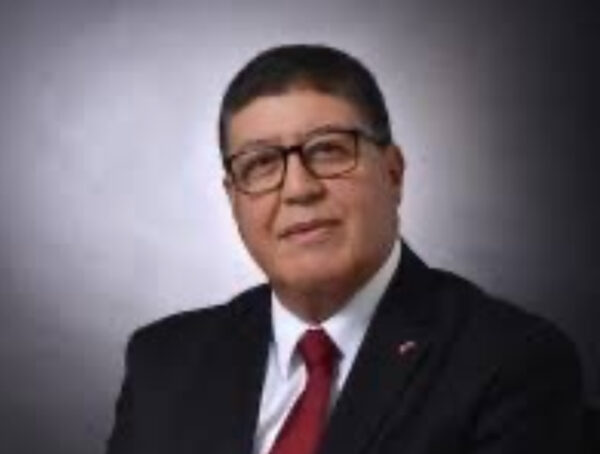Par Dr Mohamed H’MIDOUCHE*
Recapitalizing African financial institutions remains a major challenge. With its new mechanism, the Arab Bank for Economic Development in Africa (BADEA) offers an innovative solution that paves the way for the continent’s progressive financial autonomy.
Recapitalizing African regional banks has always been a puzzle: constrained public budgets, unpaid capital subscriptions, financial institutions lacking equity. By proposing to provide concessional loans to shareholder states so they can fulfill their commitments in regional or pan-African financial institutions, BADEA has introduced a major methodological innovation. This approach allows institutions to strengthen their capital without incurring debt, while enhancing their credibility with markets.
A spectacular multiplier effect
The operation carried out with the African Solidarity Fund (FSA) in 2024 illustrates this logic: with only USD 120.8 million lent, BADEA enabled the release of 72 billion FCFA, paving the way for nearly 900 billion FCFA in new guarantees and 1,800 billion FCFA in mobilizable financing. The multiplier effect reached 31, confirming the role of the FSA as a catalyst for access to credit for African SMEs.
The West African Development Bank (BOAD) benefited from an even more ambitious scheme: USD 400 million in concessional loans to states, USD 30 million in direct capital participation, and USD 100 million in hybrid debt. This combination strengthened its equity, improved its financial rating, and expanded its bond issuance capacity.
As for Shelter Africa, the support of USD 120 million helped stabilize its capital and support its transformation into a pan-African housing bank (ShafDB). This support comes at a time when Africa is facing a colossal housing deficit, estimated by Shelter Africa at 52 million units, and by UN-Habitat and IFC at over 70 to 100 million units.
Shelter Africa: a momentum to consolidate
Beyond the numbers, Shelter Africa represents a strategic issue for the urban future of the continent. Its new Director General has initiated a turnaround and modernization dynamic that is generating renewed confidence among shareholders and partners. BADEA’s support reinforces this momentum by providing a stronger capital base, an essential condition to finance social housing programs, stimulate the construction sector, and contribute to sustainable urbanization.
An institutional innovation: recapitalizing without debt
This mechanism has three essential advantages:
– Preservation of sustainability: loans are carried by states, allowing institutions to recapitalize without burdening their balance sheets.
– Multiplied leverage effect: each dollar lent results in significantly higher additional financing.
– Enhanced credibility: well-capitalized institutions inspire confidence in investors and can raise more resources in markets.
This approach contrasts with traditional recapitalizations, often slow and incomplete, and fully aligns with the vision of Agenda 2063 and the AfCFTA, which aim for an integrated, prosperous, and autonomous Africa.
Tangible benefits for the continent
The expected impacts are multiple and concrete:
– FSA: increased guarantees for SMEs, reduced sovereign risk, financial inclusion for youth and women.
– BOAD: financing of transboundary corridors, energy projects, and strategic regional infrastructure.
– Shelter Africa: development of social and affordable housing programs, job creation in the construction sector, and enhancement of local value chains.
These combined effects result in job creation, strengthened regional integration, and stimulation of inclusive growth.
Conditions for success
BADEA’s innovation does not exempt from increased vigilance. Three conditions will be crucial:
– Sustainability of the public debt of borrowing states.
– Rigorous governance of beneficiary institutions, ensuring transparency and credibility.
– Allocation of resources to productive, inclusive, and job-generating projects.
A strategic transition at the helm of BADEA
This initiative is one of the major legacies of Dr. Sidi Ould TAH, whose mandate at the Arab Bank for Economic Development in Africa (BADEA) ended on June 30, 2025. Since September 1, 2025, he has taken office as President of the African Development Bank (AfDB) Group, marking a new stage in his career. His successor at BADEA, H.E. Abdullah KH Almusaibeeh, assumed office on July 1, 2025, with a commitment to strengthen and amplify this innovative dynamic. The continuity of this strategy will be crucial to consolidate BADEA’s role in African financial architecture.
Conclusion: an innovative and open model
By recapitalizing regional institutions through their shareholders, BADEA has designed an original mechanism that combines leverage, sustainability, and credibility. This approach, still relatively unknown to the general public and many stakeholders, deserves to be highlighted as it demonstrates African financial innovation’s capacity to serve development.
Beyond the technical operation, it is a genuine strategic tool for financing African SMEs and consolidating regional financial institutions. By enabling the release of state subscriptions without burdening the debt of regional banks, BADEA contributes to strengthening the continent’s financial ecosystem and creating a multiplier effect on productive investment.
This mechanism, with its originality and effectiveness, can serve as a reference and a source of inspiration for any development institution interested in mobilizing new capital resources. It demonstrates Africa’s ability to propose its own solutions, tailored to its needs and ambitions, in line with Agenda 2063 and the AfCFTA.
Moreover, the local content laws adopted by many African countries offer extraordinary opportunities for SMEs to contribute to the realization of the continent’s major infrastructure projects, generate jobs, create wealth, and increase state revenues. Ultimately, BADEA’s experience confirms that it is possible to combine innovation, rigor, and strategic vision to support inclusive growth, strengthen African financial institutions, and give SMEs the leading role they deserve in the continent’s economic development.
*About the author
Dr. Mohamed H’Midouche, former senior official of the African Development Bank (AfDB), is the CEO of Inter Africa Capital Group, author, and international consultant.


